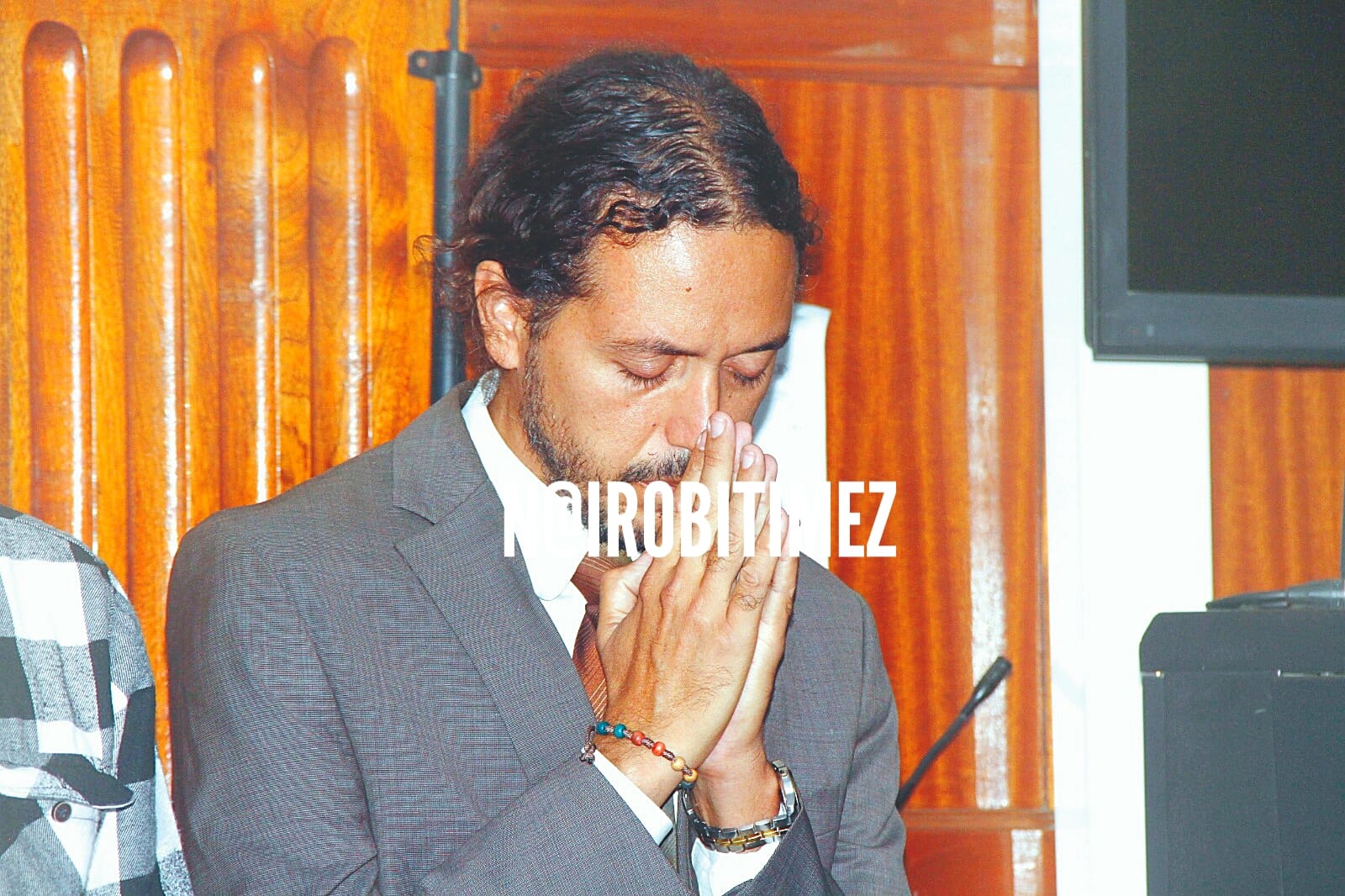
BY SAM ALFAN .
An ex-Venezuelan diplomat serving 20.years in prison for the murder of his former boss has appealed against his conviction and sentence.
Dwight Sagaray says in the appeal that he was wrongly convicted by the trial judge and wants the decision quashed.
Dwight and his co-convict Ahmed Motivane Omido, Alex Sifuna Wanyonyi and Moses Kiprotich Kalya said the trial judge convicted them despite the failure by prosecution to prove the case beyond reasonable doubt.
The appeal did not proceed as anticipated before appellate Judges Patrick Kiage, Lydia Achode and Abida Aroni because one of the convicts did not have an advocate.
“The Judgement and conviction of Justice Korir in High Court Criminal Case No. 61 of 2012 be reversed and the conviction and sentence of the 1st Accussed (Dwight Sagaray) be set aside,” pleads former diplomat.
The Venezuelan through lawyer Paul Maingi argues that the trial Judge erred in law and in fact by ignoring the testimony of one of the witnesses on the waiver of the Immunity under the relevant legal statutes and instruments thereby resulting in a misdirection.
He adds that Judge Korir erred in law and fact by convicting and sentencing him despite the fact that the prosecution did not discharge the legal and evidential burden of proof of beyond reasonable doubt.
In his memorandum of appeal, the former diplomat claims the Judge erred in her exposition of the motive and malice aforethought by limiting the possible motives and involvement of other parties thereby arriving at an erroneous conclusion against him.
According to him, by disregarding the ‘Last-seen principle’ in respect to possible involvement of other persons in the commission of the murder, the judge misdirected herself.
Maingi further said the judge was wrong in her analysis and consequent conclusion of his guilt and involvement in the murder under the principle of common intention despite the insufficiency of evidence and the prerequisite legal threshold.
He faults the judge by imputing malice aforethought on him and making a hypothetical finding of the guilt on the basis of association with one Mohamed contrary to preponderance of evidence pointing to the fact that he did not know of Mohamed’s intentions.
According to Sagaray, the judge failed to consider his defence, his testimony and documentary evidence he presented in court and the judge wrongly applied the principles on circumstantial evidence and unjustifiably ignoring or disregarding exculpatory evidence in his favour.
Lawyer Maingi argued that by placing reliance on a confession of a co-accused which confession was riddled with inconsistencies thereby resulting in a misdirection and which confession was any event exculpatory to Saragay.
Lawyer Maingi for Saragay faulted the judge arguing that by placing reliance on an unsubstantiated and unprocedurally procured note verbal alleged to emanate from the Venezuelan Ministry of Popular Power for Foreign Relations in regard to waiver of Immunity leading to misapprehension of the facts.
“The Judge erred in law and in fact by misapprehending and misapplying the principles on Diplomatic Immunity as espoused under the Vienna Convention on Diplomatic Relations (1961), Vienna Convention on Consular Relations (1963), The Privileges and Immunities Act [Cap. 179, Laws of Kenya and Article 2(5) of the Constitution whereof the 1 Accused’s trial and conviction contravened the said legal instruments making the same a nullity,” Saragay says.






